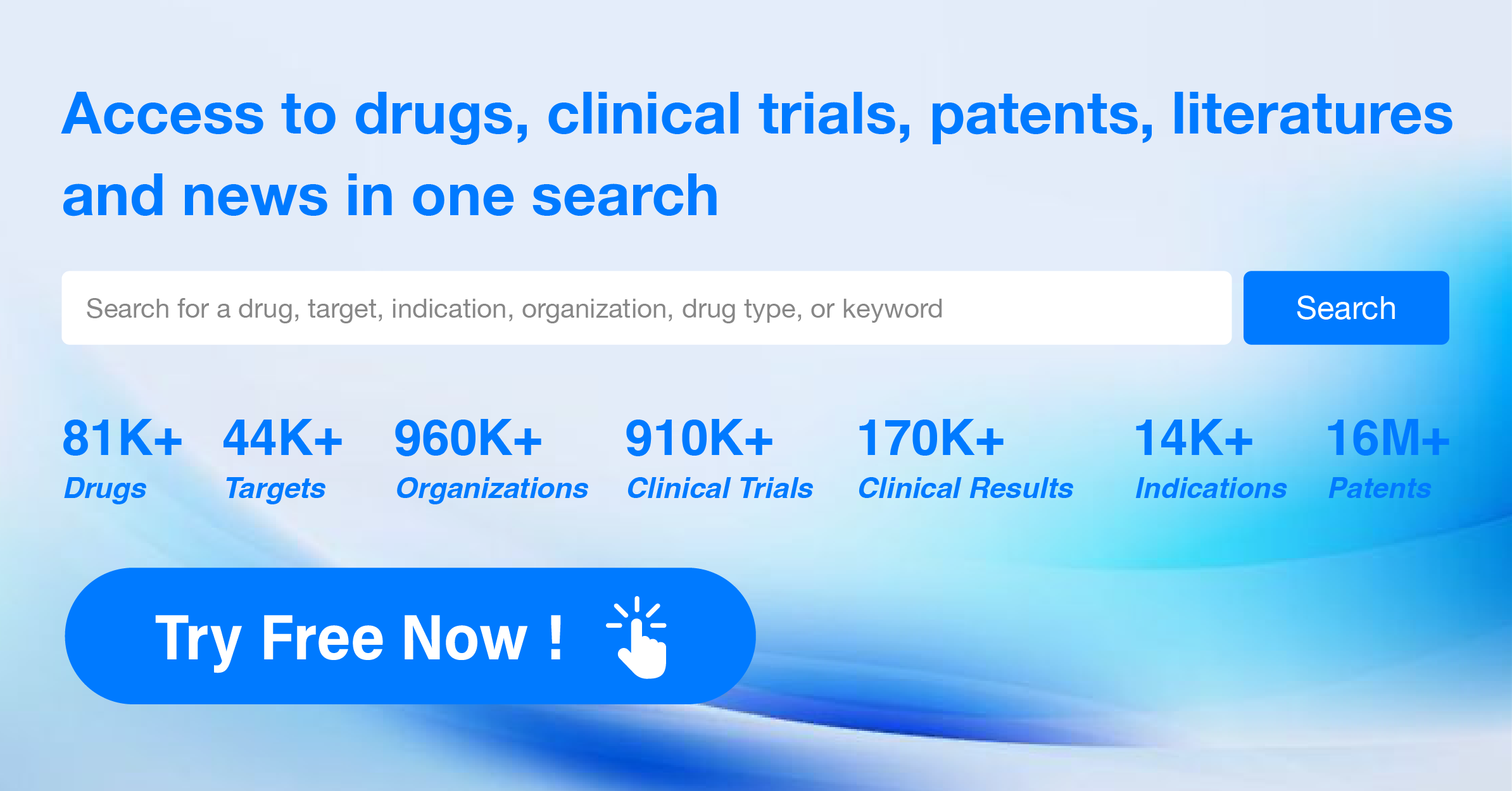Pharma Frontiers: Daily Digest of Global Pharmaceutical News - April 26
1.Novartis' "first-in-class" therapy Lutathera receives further FDA approval
Recently, Novartis announced that the U.S. FDA has approved its radioligand therapy, Lutathera (Lu 177 dotatate), for the treatment of somatostatin receptor-positive (SSTR+) gastroenteropancreatic neuroendocrine tumors (GEP-NETs) in pediatric patients aged 12 and older, including foregut, midgut, and hindgut neuroendocrine tumors. This approval makes Lutathera the first therapy approved for the treatment of pediatric patients with GEP-NETs. Neuroendocrine tumors (NETs) are cancers that originate from neuroendocrine cells throughout the body and are generally considered to be slow-growing malignant tumors. The approval of Lutathera was primarily based on the results of the NETTER-P trial, which assessed the effects of Lutathera on patients with SSTR+ GEP-NETs aged 12 to 18. The trial analysis demonstrated that the safety profile of Lutathera in these pediatric patients was consistent with that observed in adult patients in the pivotal phase 3 NETTER-1 trial, which supported the initial approval of Lutathera in adults. Additionally, the estimated radiation dose received by the pediatric patients was within the established organ thresholds for external beam radiation therapy and was comparable to the approved radiation dose for adults. Lutathera is a radioligand pharmaceutical that binds to somatostatin receptors on the surface of tumor cells to enter the cells and cause damage through radioactivity. It was first approved by the FDA in 2018 to treat previously treated SSTR patients, becoming the first FDA-approved radioligand therapy. Radioligand therapy delivers the radiation energy of radioactive isotopes directly into the tumor, killing tumor cells while minimizing the impact on healthy cells. This is one of the key technology platforms being developed by Novartis.
2.Sanofi Launches Phase 3 Clinical Trial in China for Potential Blockbuster Treatment for Atopic Dermatitis
On April 25th, the official website of the China Drug Clinical Trial Registration and Information Disclosure Platform revealed that Sanofi has initiated an international multicenter Phase 3 clinical study (including sites in China) for the injectable amlitelimab, intended to evaluate its efficacy and safety in treating patients aged 18 and older with moderate to severe atopic dermatitis. According to Sanofi's disclosures, amlitelimab is a potential first-in-class OX40 signaling pathway inhibitor, which could significantly reduce patient treatment burden with a dosing frequency of once every 12 weeks. Atopic dermatitis is a chronic, relapsing, and inflammatory skin disease often accompanied by other atopic disorders such as allergic dermatitis and asthma, causing severe itching and significantly impacting the quality of life. Treatment for moderate to severe cases typically requires systemic therapy, mainly with non-specific anti-inflammatory drugs such as corticosteroids, but these can lead to rebound effects after short-term treatment. OX40 is a co-stimulatory receptor predominantly expressed on activated T cells, and its interaction with the OX40 ligand (OX40L, a crucial immune regulator) provides important signals for T cell activation, proliferation, and survival, thereby playing a substantial role in the pathogenesis of various inflammatory and immune diseases. The immunoregulatory function of OX40L is twofold: it enhances immune activity by regulating the proliferation and survival of effector T cells, and it also inhibits the activity and proliferation of regulatory T cells. Amlitelimab is a fully humanized, non-depleting monoclonal antibody administered subcutaneously, designed to bind with OX40L to restore immunological balance between pro-inflammatory and regulatory T cells. Additionally, while inhibiting T cell-dependent inflammation, the product does not induce elimination of immune cells, potentially avoiding the side effects associated with immunosuppression.
3.Betta Pharmaceuticals' CDK4/6 inhibitor achieves positive results in Phase 3 clinical trials for breast cancer
Betta Pharmaceuticals announced on April 24th that its proprietary product, BPI-16350, has completed Phase 3 clinical trials and achieved a positive clinical trial summary report. BPI-16350 is a new molecular entity targeting CDK4/6. The Phase 3 clinical study focused on patients with hormone receptor (HR) positive, human epidermal growth factor receptor 2 (HER2) negative locally advanced or metastatic recurrent breast cancer, following prior endocrine therapy, and was administered in combination with Fulvestrant. According to previous press releases from Betta Pharmaceuticals, BPI-16350 capsules target CDK4/6 and are intended for use either as monotherapy or in combination with hormonal therapy primarily for treating HR, and may also be used in first or second-line treatment, or in combination therapy for other Rb-positive cancers. Preclinical data demonstrated that BPI-16350 capsules exhibit consistent biological activity both in vitro and in vivo, effectively inhibiting the proliferation of various solid tumor cells, and showed promising anti-tumor effects in multiple solid tumor models, as well as excellent physicochemical and pharmacokinetic properties. The results from the Phase 3 clinical study of BPI-16350 show that, based on researcher assessments, the combination of BPI-16350 and Fulvestrant significantly extended the median progression-free survival (PFS) compared to the placebo and Fulvestrant group for the treatment of HR+/HER2- locally advanced or metastatic recurrent breast cancer post-endocrine therapy progression. The PFS conclusions by the Independent Review Efficiency Committee (IREC) and researchers were consistent. Moreover, the safety profile for participants in the BPI-16350 + Fulvestrant group was favorable.
4.Positive Results for LAG-3 Targeted Therapy in Combination with PD-1 Inhibitor for Cancer Treatment
On April 24th, Immutep announced preliminary top-line results from Part B of Phase 2b trial TACTI-003 (KEYNOTE-PNC-34). The trial is designed to evaluate the efficacy of eftilagimod alpha (efti) combined with Merck's anti-PD-1 antibody Keytruda (pembrolizumab) in first-line treatment of patients with PD-L1 negative recurrent/metastatic head and neck squamous cell carcinoma (HNSCC). Efti, developed by the company, is a soluble LAG-3 protein and class II MHC agonist, which had previously been granted Fast Track designation by the FDA for first-line treatment of head and neck squamous cell carcinoma. LAG-3 protein plays a significant role in modulating signaling pathways between T lymphocytes and antigen presenting cells (APCs), integral to adaptive immune responses. The soluble LAG-3 binds with the major histocompatibility complex class II (MHC II) on the surface of APCs, activating them. This activation leads to an increase in the number and activation of cytotoxic CD8 positive T cells, enhancing the immune response against cancer antigens. Previous studies have suggested that combining anti-LAG-3 antibodies with anti-PD-1 antibodies may result in a synergistic activation of T cells. TACTI-003 is an ongoing Phase 2b study assessing the efficacy of efti with pembrolizumab as first-line therapy for recurrent or metastatic HNSCC. In this study, randomized cohort A is evaluating the efficacy of combined efti and pembrolizumab treatment versus pembrolizumab monotherapy in patients with PD-L1 positive tumors, while cohort B is assessing the treatment in PD-L1 negative tumor patients. The primary endpoint of the study is the overall response rate in evaluable patients according to RECIST 1.1. Secondary endpoints include overall survival, overall response rate according to iRECIST, progression-free survival, and duration of response.
5.Abbisko Therapeutics' FGFR4 inhibitor for the treatment of liver cancer has received FDA Orphan Drug designation
On April 25, Abbisko Therapeutics announced that its autonomously developed highly-selective small molecule FGFR4 inhibitor, irpagratinib (ABSK011), has been granted Orphan Drug Designation by the U.S. FDA for the treatment of hepatocellular carcinoma (HCC). According to statistics from the International Agency for Research on Cancer (IARC) of the World Health Organization (WHO), primary liver cancer was the sixth most common malignant tumor worldwide in 2020, with 906,000 new cases and 830,000 deaths annually. IARC forecasts that both the incidence and mortality of liver cancer will further increase by 2040. Representing the dominant subtype, HCC accounts for 85% to 90% of primary liver cancer cases. HCC is highly malignant, with approximately 30% showing abnormally high expression of FGFR4 and associated with poor prognosis, while existing treatments fail to provide long-term survival benefits. Irpagratinib is a highly selective small molecule inhibitor of FGFR4, intended for the treatment of advanced solid tumors, particularly late-stage HCC, cholangiocarcinoma, and breast cancer exhibiting abnormalities in the FGFR4 signaling pathway (such as FGF19 amplification/overexpression, FGFR4 mutations/amplification/fusion, etc.). Irpagratinib has demonstrated superior efficacy and anti-tumor effects, along with favorable physicochemical properties in preclinical studies. At the 2023 European Society for Medical Oncology (ESMO) annual meeting, Abbisko Therapeutics presented the latest clinical data on irpagratinib, which showed exceptional preliminary efficacy and safety in patients with HCC overexpressing FGF19 that had received prior treatment. In these trials, the objective response rate (ORR) in the BID (twice daily) dosing cohort reached 40.7%, significantly surpassing the ORR of several globally studied FGFR4 inhibitors in clinical trials.
6.The new GLP-1 class drug, Albenatide injectable solution, has been submitted for market approval for the treatment of diabetes
On April 24, Changshan Biochemical announced the submission of the first New Drug Application (NDA) for Albenatide injectable solution, a GLP-1 receptor agonist, to the National Medical Products Administration (NMPA) of China for the treatment of type 2 diabetes. Established in 2000, Changshan Biochemical focuses on the research, development, production, and sales of innovative drugs in the fields of cardiovascular and cerebrovascular diseases, diabetes, and cancer. Albenatide injection is a long-acting glucagon-like peptide-1 (GLP-1) analog that employs a unique Drug Affinity Complex (DAC) technology. This involves the chemical modification of the GLP-1 receptor agonist Exendin-4, enabling it to bind with recombinant human albumin (rHA) to form a stable Exendin-4 albumin complex. This compound overcomes the natural shortcomings of Exendin-4, such as rapid degradation and fast renal clearance, by extending the drug's half-life and duration of efficacy in the body, achieving a once-weekly dosing regimen. According to a press release from Changshan Biochemical, two phase III clinical trials conducted on Chinese subjects with type 2 diabetes both achieved their primary endpoints and key secondary endpoints. Clinical studies demonstrated that continuous treatment with Albenatide injection for 24 weeks significantly reduced blood sugar levels in subjects with type 2 diabetes. The drug showed a rapid onset of action, with significant effectiveness observed as early as week 5. Blood sugar levels continued to decrease from week 5 to 17 and stabilized by week 17, with the therapeutic effect maintained up to 52 weeks.
In terms of safety, Albenatide exhibited good safety and tolerability profiles. There were no incidents of death or pancreatitis, and no new unexpected safety risks were observed.
7.Hansoh Pharma Announces Strategic Collaboration with Qyuns Therapeutics on QX004N Monoclonal Antibody
On April 25th, Hansoh Pharma, a leading innovation-driven pharmaceutical company in China, announced a strategic collaboration with Qyuns Therapeutics, a biopharmaceutical company specializing in autoimmune and allergic disease therapies. The agreement, signed on April 24th, pertains to the QX004N monoclonal antibody independently developed by Qyuns Therapeutics. According to the agreement, Hansoh Pharma will obtain exclusive rights for the development, production, and commercialization of all viable formulations and indications of QX004N monoclonal antibody within the collaborative region (Mainland China, Hong Kong, Macau, and Taiwan). Qyuns Therapeutics will retain the rights for the R&D, production, and commercialization of QX004N outside the collaborative region. Furthermore, Hansoh Pharma will make an initial payment of 75 million RMB to Qyuns Therapeutics, along with potential payments up to 1.032 billion RMB for development, regulatory approvals, and sales-based commercial milestones, in addition to tiered royalties based on future product sales. QX004N is an innovative drug candidate intended for the treatment of psoriasis and Crohn’s disease. As of the date of announcement, QX004N has initiated several clinical trials, with the highest development stage in China being Phase II clinical trials.




